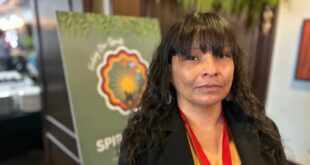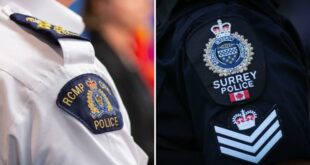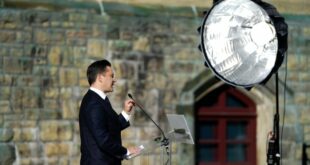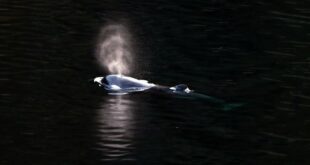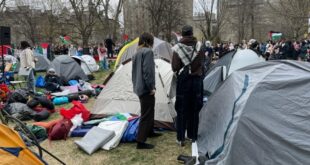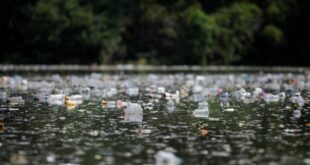At vigil to remember opposition leader, dreams of returning to Russia feel distant

Yara Kadulina left Russia more than a decade ago, but fear followed her across the ocean.
"Most of us ran away from Russia, or don't go back to Russia, because a lot of us are afraid of something there," she said. "Fear extends to those abroad…. I'm in a same-sex relationship. A lot of the time, I'm afraid to put it on paper."
That's why she has so much respect for a man who did go back. Opposition figure Alexei Navalny returned to Russia in 2021 after he was treated in Germany for the effects of poisoning. He was arrested at the airport and put in prison. Now he is dead.
Kadulina was devastated by the news. She views Navalny as a man of integrity and courage. His loss makes her feel "fatalistic."
She dreams of going home one day. Friday evening, at an Ottawa vigil to remember Navalny, that dream felt very far away.
"It will take another 10, 20 years," she said. "So I will probably make it there when I'm old."
About 50 people gathered at the Russian Embassy on Friday. Some were people with Ukrainian roots or connections, or just concerned citizens of all backgrounds, who often gather there to oppose the war.
But many were Russians.
They held candles and carnations. They chanted "Russia will be free" in Russian.
For Maria Urkina, Navalny symbolized the hope of a Russia after Putin.
"That hope was stolen from us today," she said.
His death was hard to accept, she said.
"I was completely shocked," said Urkina, who has been in Canada for five years. "First I could not believe, and then I started crying."
But Friday's protest made her feel that, at least, she wasn't alone.
'I have to believe that it will get better'
Organizer Tatiana Lebedeva said Navalny's views weren't universally supported by the Russian opposition, but he consistently inspired people to not give up and keep protesting, however slim the odds of victory might seem.
"He was also the person — and it's really surreal to say this in the past tense — who called out that we shouldn't be doing nothing," she said.
"We're not alone. Hope is not dead, even though that's what it feels like right now."
Antiwar activist Maria Kartasheva was another organizer. She asked the demonstrators to remember the political prisoners who are still in Russia.
"The loss we had today is enormous, but there are so many people there who are going through the same thing," she said.
"It is a hard time, but we should stay together because this is what he would want, for us to be together, to not be afraid."
Kartasheva became a Canadian citizen just weeks ago, after a widely publicized delay due to her conviction in Russia, in absentia.
If she returned to Russia, she would face an eight-year sentence for criticizing the Russian army. But even after Navalny's death, she hasn't lost faith in the idea of a different Russia.
"While I still live, I need to hope, and I have to believe that it will get better," she said. "I need to believe that it would happen, that I will be able to go home, to see my friends, see my family — not somewhere in some other country, but there, where I grew up — to hug them."
After speeches, the demonstrators walked. They formed a memorial of flowers and posters at the edge of Strathcona Park, not at the embassy, with many saying they expected Russian diplomatic staff to quickly destroy anything they left in Navalny's memory.
At the edge of the park, Kadulina pointed to a photo of Navalny and spoke to her daughter in Russian.
"People are afraid a lot of the time. That's why people don't come to protests or don't express themselves…. Here we have more freedom to do that," she said, translating her message.
"You should not be afraid, you should be courageous and stand up for your values, like he did."
ABOUT THE AUTHOR
Reporter
Arthur White-Crummey is a reporter at CBC Ottawa. He has previously worked as a reporter in Saskatchewan covering the courts, city hall and the provincial legislature. You can reach him at arthur.white-crummey@cbc.ca.
*****
Credit belongs to : www.cbc.ca
 MaharlikaNews | Canada Leading Online Filipino Newspaper Portal The No. 1 most engaged information website for Filipino – Canadian in Canada. MaharlikaNews.com received almost a quarter a million visitors in 2020.
MaharlikaNews | Canada Leading Online Filipino Newspaper Portal The No. 1 most engaged information website for Filipino – Canadian in Canada. MaharlikaNews.com received almost a quarter a million visitors in 2020.

